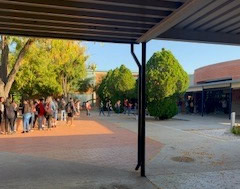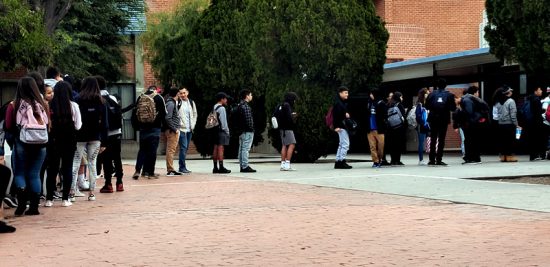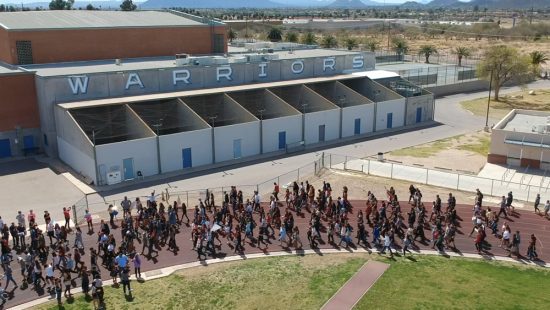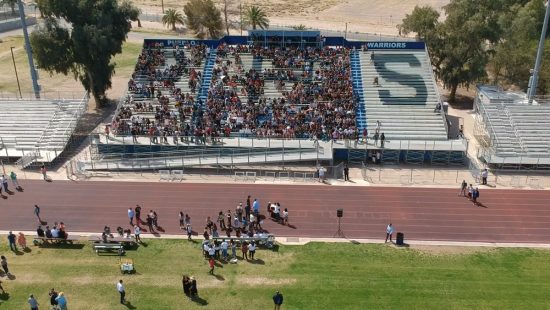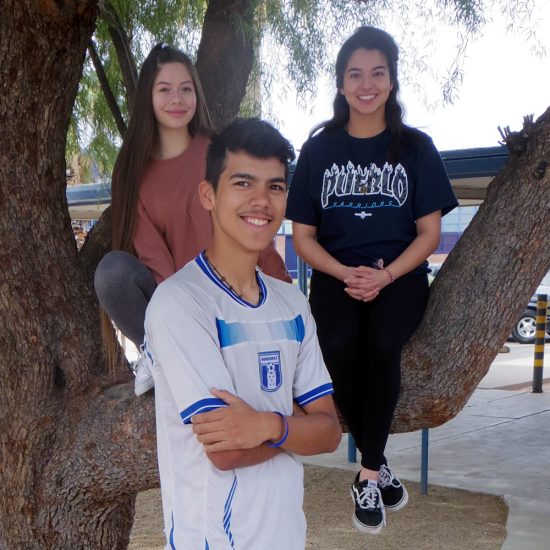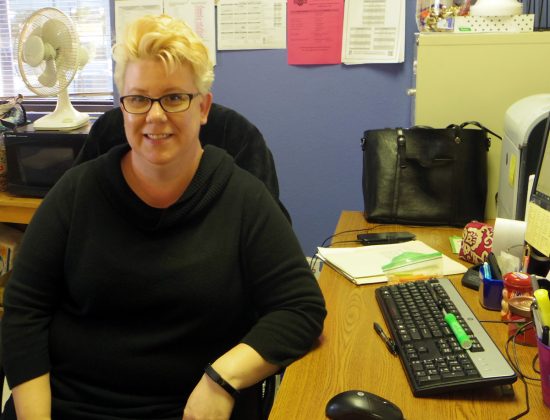By Victoria Cazares and Alondra Lazalde

The 2020-21 school year has been a complicated time for the Pueblo community, and Mr. Frank Rosthenhausler, our school’s principal, recently expressed his fair share of struggles—but offers advice and solace to those who are sharing his frustrations.
Rosthenhausler, who is beginning his third year as principal at Pueblo, said that not seeing his students and staff in person has been the very challenging.
“I admit that I had a tough first week,” Rosthenhausler said. “I shared in the agony of seeing families struggle, our students struggle and our staff struggle. All of this isn’t exactly what I had signed up for when I became principal. Still, it is my responsibility to make our [Pueblo] community whole.”
Despite the challenges that he has encountered, Rosthenhausler said that he has become more adjusted to the often adverse and challenging circumstances that the Pueblo community has experienced regarding online instruction during the Covid-19 pandemic.
“It’s been emotionally tough, but I’ve figured out some ways to cope,” said Rosthenhausler. “At the end of the first quarter, I feel a lot better now, and interviews like this help because I get to talk to the kids and see the kids. In the end, I’m okay with where we are for now.’’
As principal, Rosthenhausler said that it has been a bit challenging keeping the balance between students and teachers. He fears that teachers are handing out too much homework, or they are not assigning enough.
“I ask myself a lot of questions, like, ‘Where does that balance lie between teaching and handing out homework and grading homework? How can we avoid stressing out our students with an incredible amount of work and time on the computer? How do teachers avoid stressing out themselves with handing out too much work and trying to grade everything they assign—as well as provide the feedback necessary for students to actually learn?’” He paused and added, “How can we all do what’s best for our students and teachers…?”
On Tuesday, Oct. 6, the TUSD Governing Board decided that students will not be returning to campus after the fall break on Monday, Oct. 19. There will be future meetings to determine when the district will deem it safe for a campus return—and at a specific capacity. Rosthenhausler said that he does not know anything for certain, which has been frustrating.
However, he did express that he will be “very pleased” to see all the students again. He believes there is more to school than just education; high school is also about students’ experiences with their peers and their teachers.
“There’s so much more to education beyond what we learn in books,” Rosthenhaulser said. “Our students really need the opportunities to socialize with adults and with their peers, organize their day, and be a part of clubs and other organizations that really hit the social and emotional aspects of schooling.” He paused and added, “I’ll be thrilled to see everybody back, and I’ll be holding my breath until that happens.”
Rosthenhausler encourages students to stay motivated while they are learning online.
“I would like students to finish off strong, make sure they are paying attention in teachers’ Zoom meetings, handing in homework and keeping their heads above water, so that when the time is right to return to campus, we can slowly start coming out of the ocean.”
Rosthenhausler said that it is important for the Pueblo community to be flexible for the next several months. He said that it is very possible that we could return to campus—only to have to return back to online instruction if being on campus is deemed unsafe again.
“We just have to be tough,” he said. “This situation is a true test of life. Our path isn’t always what we’ve outlined.”
